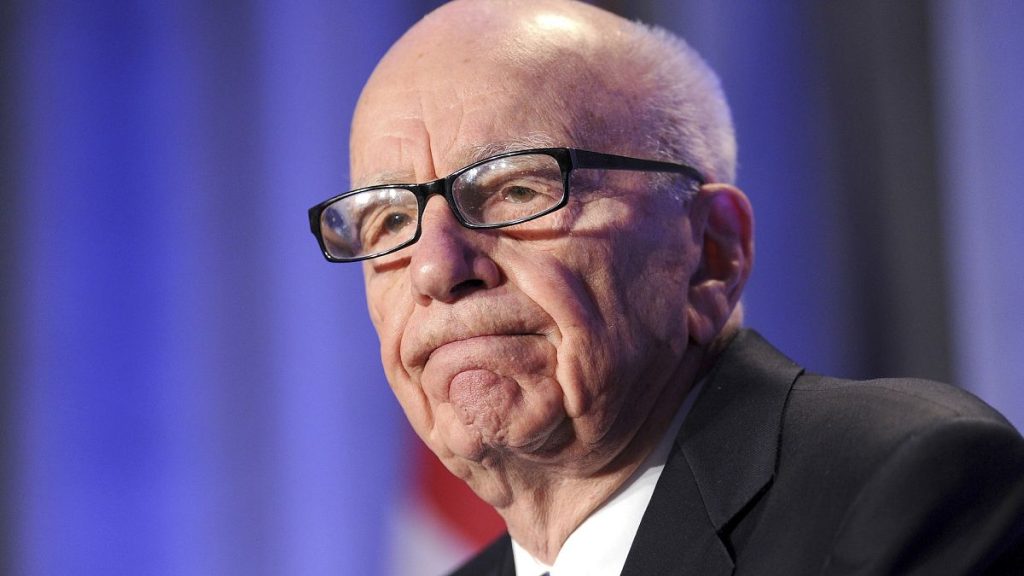The Murdoch family trust, established to ensure equitable division of Rupert Murdoch’s media empire among his four children – Prudence, Elisabeth, Lachlan, and James – faced a legal challenge when Murdoch and his son Lachlan attempted to amend its terms. The proposed amendment aimed to grant Lachlan, already at the helm of Fox News and News Corp, sole control over the companies after his father’s death, effectively disenfranchising the other siblings. The rationale presented was the preservation of the businesses’ commercial value, particularly Fox News’ conservative editorial slant, a position supposedly threatened by the less conservative political leanings of James and Elisabeth.
A Nevada probate court, however, rejected the proposed amendment, characterizing it as a “carefully crafted charade” designed to solidify Lachlan’s leadership irrevocably. Commissioner Edmund J. Gorman Jr. concluded that the attempt was made in “bad faith,” with the intention of preemptively ensuring Lachlan’s succession, disregarding the potential impact on the companies or the other beneficiaries. The court saw through the presented justifications, recognizing the maneuver as an attempt to unfairly advantage Lachlan and manipulate the succession process. This decision effectively upholds the original trust structure, maintaining equal control among the four siblings upon Rupert Murdoch’s demise.
The legal battle over the Murdoch family trust exposed deep divisions within the family, highlighting the differing political ideologies among the siblings and the potential ramifications for the future direction of the media empire. Rupert Murdoch, throughout his career, has been known for his conservative political views, which have significantly influenced the editorial stance of his media outlets, particularly Fox News. Lachlan Murdoch appears to share his father’s conservative ideology, while James and Elisabeth have publicly expressed more liberal viewpoints. This ideological divergence likely played a significant role in the attempted amendment, with Rupert and Lachlan seemingly aiming to safeguard the perceived commercial value linked to Fox News’ conservative audience.
The court’s decision to preserve the original trust structure represents a victory for Prudence, Elisabeth, and James, upholding their equal rights to the family’s media assets. Their spokesperson expressed relief at the ruling and a desire to move beyond the litigation, focusing on repairing familial relationships strained by the succession struggle. The legal battle underscores the complex interplay of family dynamics, business interests, and political ideologies within the Murdoch empire, revealing the potential for conflict when personal beliefs intersect with corporate control.
The probate court’s detailed 96-page opinion meticulously dismantles the arguments put forth by Rupert and Lachlan Murdoch, exposing the underlying motivations behind the attempted amendment. Commissioner Gorman’s ruling not only preserves the equal distribution of control among the siblings but also serves as a stark condemnation of the tactics employed to manipulate the succession process. The court’s firm stance against such maneuvers safeguards the integrity of the trust and reinforces the legal principle of equitable distribution among beneficiaries.
This ruling marks a significant turning point in the Murdoch family saga, potentially reshaping the future landscape of their media empire. While Lachlan currently leads Fox News and News Corp, the affirmed equal control among the siblings after their father’s death introduces an element of uncertainty. The differing political views of the siblings could lead to future power struggles and potentially influence the editorial direction of the media outlets within the empire. The legal resolution, while upholding the original trust, leaves open the possibility of further internal conflicts as the siblings navigate their shared control. This ongoing family drama provides a glimpse into the intricate web of power, influence, and personal relationships that shape the future of one of the world’s most powerful media conglomerates. The siblings’ ability to reconcile their differences and work collaboratively will ultimately determine the future direction of the Murdoch legacy.














